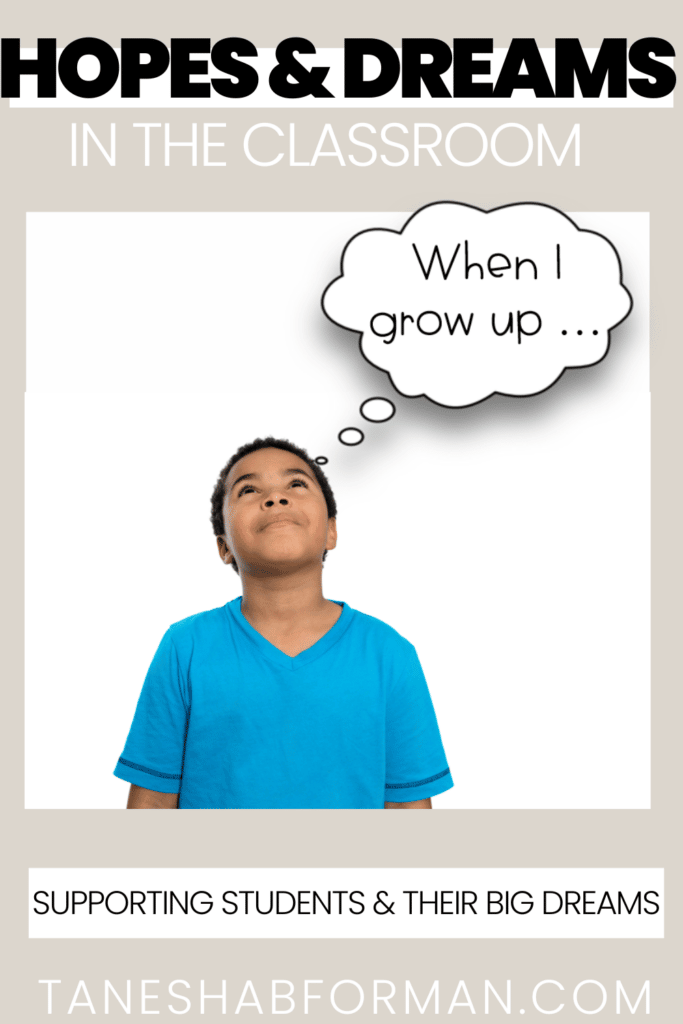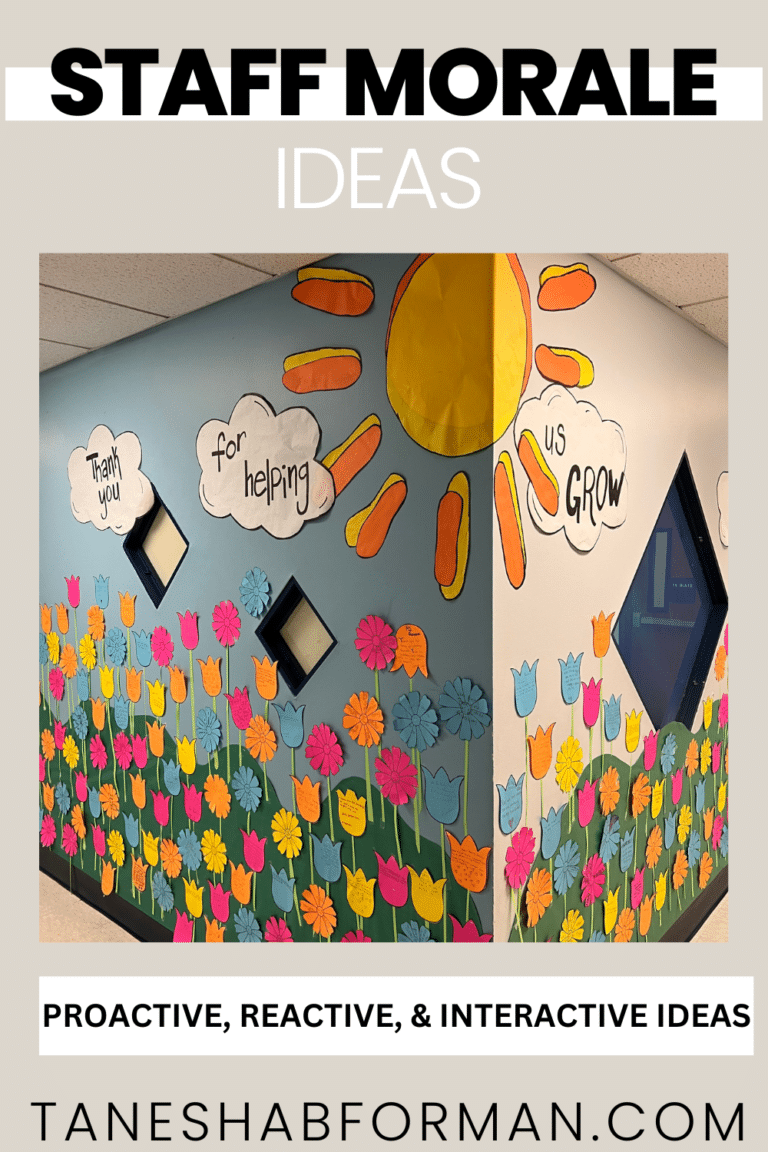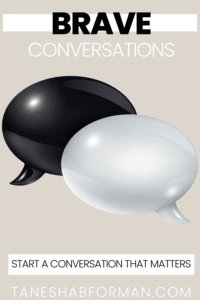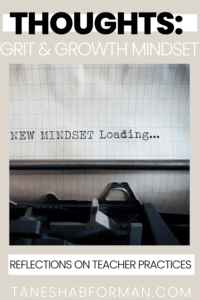

Thoughts on Supporting Student Dreams
I told my 4th grade teacher that I wanted to be Oprah when I grow up. This was before Oprah was OPRAH, OWN Network, and the O Magazine. This was when (to me) she was simply the “black lady on tv everyday.” I vividly recall my teacher giggling and noting, “You can’t be that, pick something else.” Deflated, I defaulted to lawyer because I knew it would please my teacher and Phylicia Rashad was one on The Cosby Show. And that is where my “Oprah” dream died. Killed by a well-intentioned, but ill-informed teacher.
Rewind twelve years to my first year teaching. I was placed in a self-contained classroom serving students with emotional and behavioral disabilities. I looped with many of them for three years, and they were my first student loves. I thought I was looking out for them and giving solid advice when they shared their career aspirations and I steered them in different directions. In hindsight, I was a dream killer. So how do teacher’s kill dreams? Glad you asked.
1) Using Statistics to Detour Students – Somewhere in my walk of life I internalized that if boys told me that they wanted to be athletes, I had to push back because the possibility of them doing so was slim to none. The statistics were ready made for me. There are more than a million high school football players. Of the million, about seventy-two thousand will play college football. Only about two hundred and fifty will be drafted into the pros. Therefore, the odds of making it to the pros is about one in four thousand. The key fact that I failed to disclose to my students was that I don’t choose the one. Teachers should leverage statistics to communicate urgency around their goal. Consider the following prompts and activities:
- The average athlete works out XX hours a day. How are you balancing time to workout and complete your school work?
- In order to become a professional football or basketball player, you have to attend college. Let’s make a plan to make sure you are prepared.
- Are there electives in high school you can take that will give you experience with …?
- Research people who are currently in the field and note commonalities in their pathways. Did they all go to college? If so, which ones? Did they take certain classes? Are there people you can connect with to learn more or serve as a mentor?
2) Not incorporating the dream into the classroom – Teachers have a million (or so) things on our plates. We get into our routines and sometimes miss key opportunities to promote or connect student aspirations to our classroom content. For example, after telling my teacher that I wanted to be Oprah, she could have invited to me “co-teach” with her. This could have been as simple as, “Tanesha, let’s give you a chance to practice public speaking. Can you come the front of the class and explain how to …” See, nothing too big outside of what we already do, but it demonstrates our commitment to them living out their life goal. Need help with other common-ish dreams? I got you.
- Lawyer – “A quality of lawyers is critical analysis and strong argumentation. Can you please explain another way this problem can be solved? OR Can you explain the counter argument for this assertion?
- Musician – “Professional musicians practice for hours and listen and learn from other musicians. Can you bring in a beat or song that we can play during (indoor recess, do now, dismissal)?”
- Doctor – “Doctors help people who are hurt feel better.” Name instances where students help the classroom community
- Actor – “Actors are able to convince viewers of their role. Read the next part with correct…”
- Scientist – “Scientists demonstrate a tremendous amount of curiosity and problem solving. Let’s look back at our experiment what is one flaw in our thinking… OR How might scientists use the information in this article to …” OR encouraging students ask questions about our world and create hypotheses
3) Comparing/Devaluing Student Choice – Teachers know what it feels like to be devalued. Sometimes, we unintentionally pass that on to our students. Imagine a student saying, “I want be a chef,” and we respond, “Ok.” Another student then says, “I want to be an environmental engineer,” and we respond, “Wow, that’s awesome and a great way to look out for the earth.” What does our response to the first student communicate to them? Our students long for our approval, and we have to be mindful of our responses to them.
4) Having Fixed Mindset – Consider a student who is not doing well in math stating they want to be an accountant. If their teacher says, “You’re not even passing your math class” OR “Math isn’t your strength” then they are assuming the student will never improve. Instead, consider statements like, “Being an accountant requires a strong background in math. You are currently working on ___, focus on ___ to build skill.”
There are a few important considerations. Last year, I had a student tell me she wanted to be a unicorn. She was completely serious. No joke. Truth is there’s a zero percent chance of her turning into one. How’d I navigate this? I told her that. Yes, I violated rule #1. However, I told her that unicorns are magical, unique, and legendary. I encouraged her to consider how to incorporate those principles into her life. I even created an activity for her to find her inner unicorn. The bottom-line is be supportive and listen to students. I believe in student choice and that includes their full ownership over their life. I view myself as a conductor between them and their life passions. How do you support the dreams of your students? I’d love to know!
All Love.
T

PIN FOR LATER!
JOIN THE COLLECTIVE
Sign up and access the FREE resources to support your Anti-Bias/Anti-Racism journey.

Tanesha B. Forman
I'm a current middle school administrator who loves breaking down complex topics and providing opportunities for educators learn, reflect, practice, and implement methods that foster equity and anti-racism. I believe we win together!
Behind the Blog


Hi, I'm Tanesha.
I’m a current middle school administrator who loves breaking down complex topics and providing opportunities for educators learn, reflect, practice, and implement methods that foster equity and anti-racism. I believe we win together!












